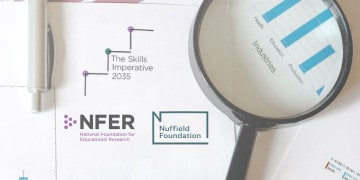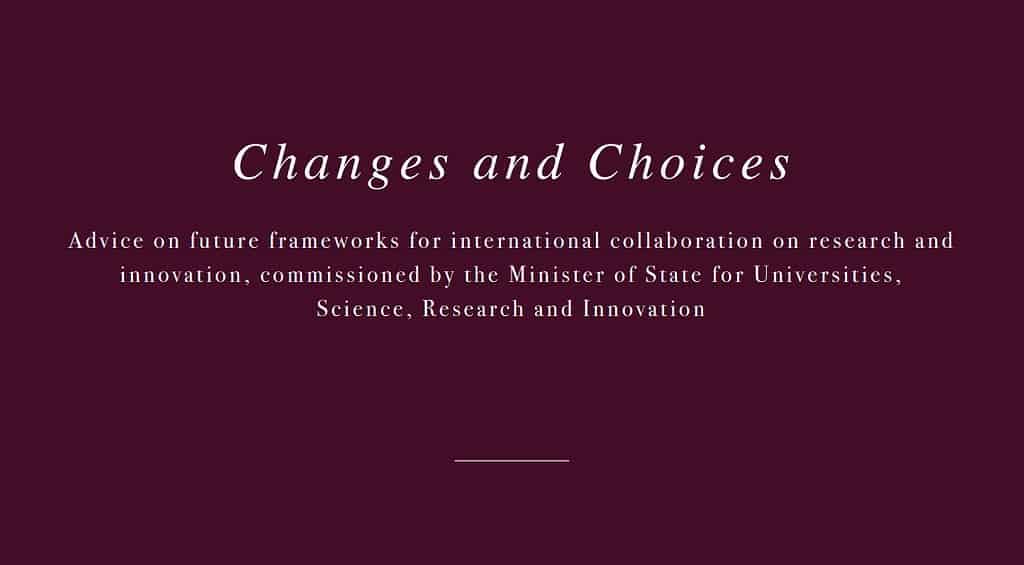Science is an inherently ‘practical’ subject. It should follow that the majority of school science lessons involve investigations and experiments. But they don’t, says Dan Sullivan, Founder of Empiribox.
Why we need to put the practical back into primary science
31 Oct 2018
Over the last 10 years a growing number of reports have shown that primary schools need to deliver more practical science. So why is this not happening?
I’m a science teacher, and I’ve taught in many different settings – from primary schools to challenging inner city secondary schools. I’ve found a surprising lack of awareness about the outcomes of our national science curriculum.
We all understand that the outcome of maths is numeracy – and that from English we assist every generation to become literate and articulate. In music we inspire and enthuse students to build imagination and creativity, so what is the purpose of science? Many teachers struggle to answer this, through no fault of their own.
I believe the outcomes for pupils should be:
- To inspire a real and enthusiastic sense of enquiry about the world around us
- An ability to solve problems practically and theoretically handling a wide range of equipment
- An understanding of the patience needed for discovery
- The ability to work as a team to solve problems
- Feeling comfortable with ‘doubt’- based on a sound appreciation of how difficult it is to ‘know’ anything for sure!
- A lifelong love of the wonder of the natural universe – its sheer beauty, vastness and complexity.
This can only be achieved by allowing children to get hands-on – and have fun – with science. We won’t inspire the scientists of the future by asking them to copy from the whiteboard or ponder a textbook.
So why is there so little practical science in schools – and in primary schools in particular?
The last 40 years have seen a perfect storm of contributing factors:
- Science O Levels and GCSEs have been ‘exam driven’ – lacking inspiration and encouraging student disaffection,
- Science GCSEs and A Levels have become content-heavy and fact based without exciting practical work. Although the new GCSEs are a nod in the right direction, they are still too theoretical
- Graduates becoming primary school teachers lack enthusiasm for practical science – having gone through a system which ignores it
- Teacher training includes too little science – not enough to instil a passion for teaching the subject
- The Science National Curriculum – particularly at primary level – is unimaginative, and misses a key moment to engage young learners
- Science resources are unchallenging and dull – missing the opportunity to tap into pupils’ enthusiasm for finding things out, learning and being able to apply the scientific method
- Formal testing for science was removed from the National Curriculum in 2009 leading to schools marginalising the subject
- Fair testing is an over-used concept in primary science. This disempowers non-specialist teachers who have no real means of teaching whether data is valid
- Budget squeezing affects science and indeed every subject
So what are the end results?
- Many primary schools only teach science for one hour each week
- No real practical science is delivered – pupils leave primary school uninspired
- Most primary schools lack basic science equipment. A 2014 Learned Societies report in Scotland found that the average annual spend per pupil on science was £1.62
- Children begin high school unable to apply the scientific method rigorously. They routinely use the phrase ‘fair-test’ without any real understanding of the scientific method and how to apply it
And perhaps most importantly
A significant problem for the future of science and engineering in the UK.
The future of our scientific capital ‘starts’ in primary schools. It cannot be fixed after the event by throwing money at GCSE or A-Level studies.
The solution is to start delivering consistent, rigorous and inspiring practical science in every primary school. Amazing hands-on lessons which engage teachers and pupils alike, so that children are excited by the prospect of becoming the scientists of the future.
In doing so we will:
- Inspire young minds
- Inspire teachers, to teach wonderful and exciting lessons
- Make children super keen to learn and apply their science learning
- Boost results in English and maths because of engagement with science
- Create the aspiring, practical scientists of the future
It’s really that simple. Let’s improve our primary science provision – and nurture tomorrow’s scientists today.
Dan Sullivan is the Founder and CEO of Empiribox – the leading primary science education provider. Empiribox works with primary schools across the UK, helping teachers to deliver fun practical experiments and engage younger children with science.
- https://wellcome.ac.uk/sites/default/files/review-of-ofsted-inspection-reports-wellcome-dec16.pdf
- https://www.gov.uk/government/publications/maintaining-curiosity-a-survey-into-science-education-in-schools
- http://www.gatsby.org.uk/education/programmes/support-for-practical-science-in-schools
- http://www.rse.org.uk/wp-content/uploads/2016/10/PR-Scottish-Schools-Struggling-to-Teach-Science-Due-to-Lack-of-Equipment-Resources.pdf
- https://www.innovadesigngroup.co.uk/news/practical-science-in-the-classroom/
- https://www.perse.co.uk/blog/the-importance-of-practical-work-in-school-science/
- http://www.gettingpractical.org.uk/documents/EmmaWoodleyarticle.pdf
- https://catapult.org.uk/wp-content/uploads/2016/04/Ingenious-Britain-James-Dyson-Report-2010.pdf.pdf
Related articles

The Physiological Society’s policy team on the health challenges facing older workers and the urgent need to develop a strategy to ensure older people are happy and healthy at work.

Jo Reynolds, Director of Science and Communities at the Royal Society of Chemistry, on the RSC’s new summary report looking to unlock the potential of deep tech SMEs.

Lisa Morrison Coulthard, Research Director at the National Foundation for Education Research, on the Nuffield Foundation funded five year research programme providing insights into the essential employment skills needed for the future workforce

Sir Adrian Smith, Institute Director and Chief Executive of The Alan Turing Institute, and Graeme Reid, Professor of Science and Research Policy at UCL, set out the findings from their new independent report on international partnership opportunities for UK research and innovation